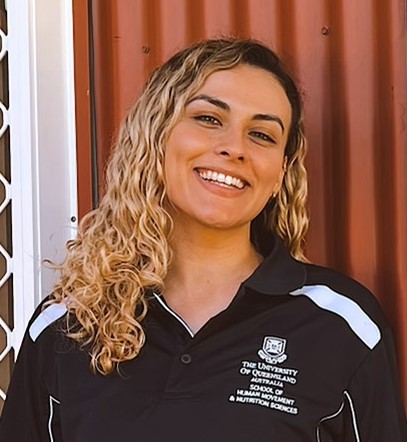 Hello! I’m Bronte (@Bronte_Lister)! I will be graduating from the UQ Master of Dietetics Studies this year and am also an ADHDer myself.
Hello! I’m Bronte (@Bronte_Lister)! I will be graduating from the UQ Master of Dietetics Studies this year and am also an ADHDer myself.
Having lived with ADHD my whole life, I’ve been through my fair share of challenges when it comes to my nutrition and eating patterns.
My lived experience, paired with my studies in nutrition and dietetics, is what inspired me to specialise in neurodivergent nutrition. It was also the turning point where I learned that ADHD and nutrition are very much intertwined, and that good nutrition may have positive effects on the severity of symptoms experienced with ADHD.
What is ADHD?
Attention Deficit Hyperactivity Disorder (ADHD) is a neurodevelopmental condition with symptoms comprising inattention, hyperactivity, and impulsivity These symptoms can impact an individual’s day-to-day life and can even have effects on food intake and nutrition.
Check out the latest UQ Contact Magazine article ‘Embracing adult life with ADHD’.
Nutrition challenges with ADHD
There are many challenges individuals with ADHD face when it comes to their nutrition. Trust me, I have experienced many of them myself. These can include:
- Poor appetite
- Loss of appetite from stimulant medication
- Forgetting to eat during the day
- Overeating at night
- Binge Eating Disorder
- Food sensitivities
- Selective food choices
- Digestive problems
- Impulsive decision making
- Emotional eating
- Poor planning and preparation
- Commonly resorting to takeaway/dining out
- Eating for stimulation
ADHD nutrition deficiencies and blood sugar levels
With so many potential nutritional challenges, it can be hard for people with ADHD to eat a well-balanced, complete diet. This puts people with ADHD at higher risk of developing a nutrient deficiency. Deficiency of essential nutrients may increase the severity of symptoms experienced with ADHD and make day-to-day functioning more challenging.
For instance, micronutrients (Omega-3 polyunsaturated fatty acids (PUFA), B vitamins, magnesium, iron, and zinc) are essential for adequate brain functioning. A deficiency can increase symptoms of attention deficit, emotional problems, and hyperactivity.
Likewise, consistent blood sugar levels are important for regulating mood, focus, and energy. Forgetting to eat during the day or not feeling hungry can cause blood sugars to be low. This can increase symptoms of agitation, fatigue, brain fog, restlessness, and poor focus. Impulsively snacking on high sugar foods can also cause large spikes in blood sugar, followed soon after by a crash, which further increases these symptoms.
Practical strategies to help manage ADHD symptoms
The best strategies are the ones that works best for you. Here are some of the strategies that I have personally found helpful in managing my ADHD symptoms:
- Planning, planning, planning! Make a grocery list, try online grocery orders, utilise your calendars, checklists, reminders & alarms. Whatever works for you!
- Meal prepping: instead of cooking 5 times a week, or starring at your fridge hungry, with nothing to eat, cook in bulk once a week and store various meals in containers in the fridge or freezer.
- Utilising time-saving items: You could use a slow cooker, instant pot, air fryer, pre-cut vegetables, frozen fruit and vegetables, microwave rice and pasta or even pre-made meals.
- Always have a fuelling breakfast: Make a fuelling breaky full of protein, complex carbohydrates, and fibre will provide your body and brain with a sustained release of energy throughout the day. Try to sneak a breaky in before taking any medication.
- Eating small frequent meals and snacks: When you have poor appetite or lack of time, having fuelling, easy to grab snacks on you throughout the day can be a lifesaver. Store these in a lunchbox, in your car, or at your desk.
- Packing a lunchbox the night before: This helps avoid that last minute scramble before you rush out the door for the day.
- Using visual reminders: Place foods you want to eat more of in your line of eyesight. Visual reminders are extremely effective for people with ADHD, so use them to your advantage.
- Taking nutrient supplements: If you are deficient in a vitamin or mineral, and struggle to consume it in your diet, a supplement may be easier to get you back to baseline. Chat to your GP, Pharmacist, or Dietitian.
- Reducing distractions during meals: Eating in a comfortable environment with minimal distractions (like TV, phone, or noise) can help you focus on your food and eat more mindfully.
- Getting enough sleep, staying well hydrated, and reducing stress: Sleep, hydration and stress all impact nutrition, food intake, and ADHD symptoms.
Remember, everyone has individual requirements, challenges, and strengths. It is important to work with a qualified Dietitian who recognises and works with your neurodivergence. Check out @Bronte_Lister (Instagram) for more information.
You may also be interested in: 5 secrets to studying better with ADHD
If you have been affected by the topics covered in this article, find help and resources via:
- UQ Student Support and Wellbeing Services Counselling Team on 1300 275 870
- Black Dog Institute
- Lifeline on 13 11 14
- Kids Helpline on 1800 551 800
- Beyond Blue on 1300 224 636
- Headspace on 1800 650 890
